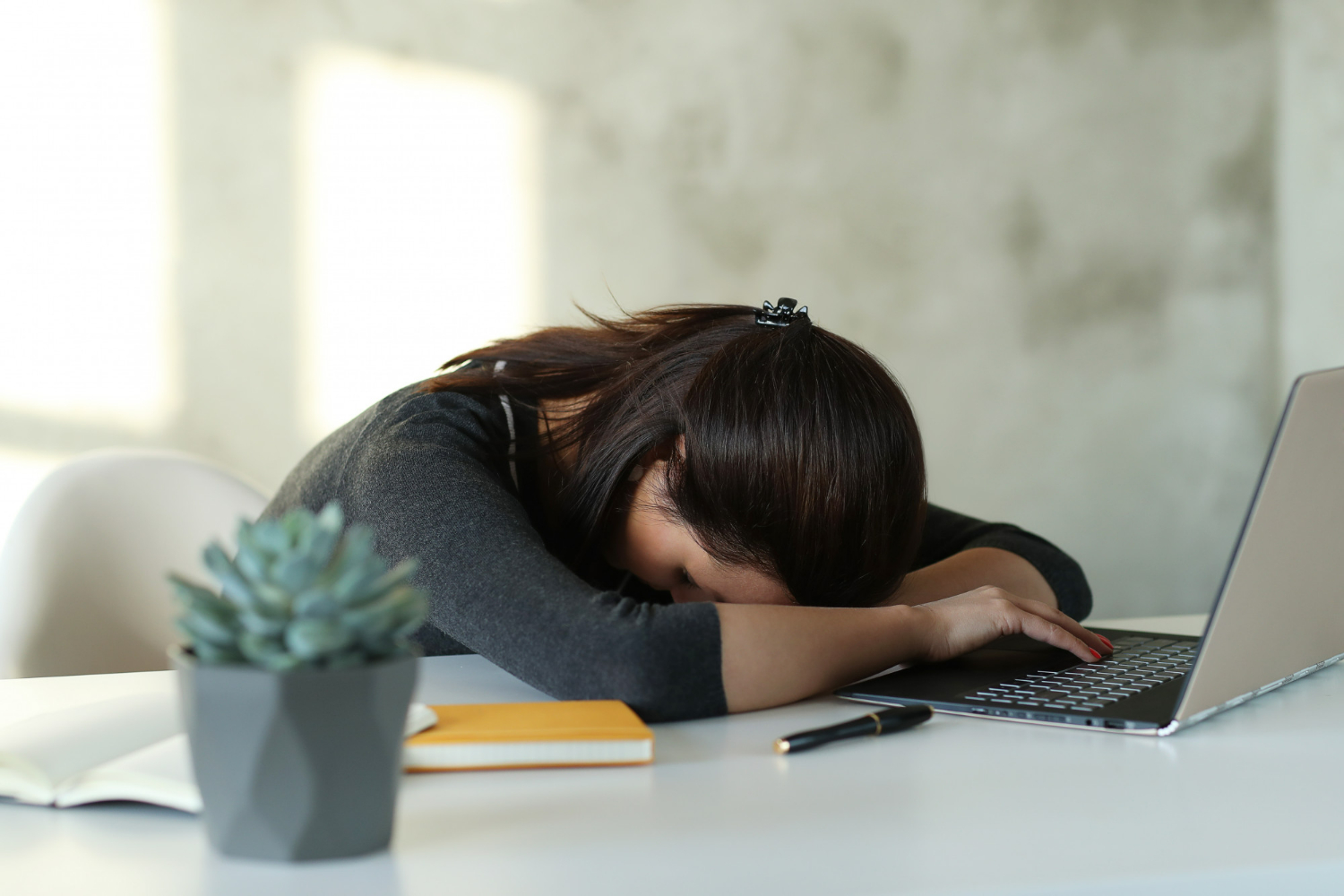
Everybody has gone through this – falling asleep during a lecture or a conference; feeling the eyelids droop while staring at the computer screen at work; just wanting to surrender to the comforting embrace of slumber in the middle of the workday: excessive daytime sleepiness.
But for some people this is not a one-off — it is their waking reality. Even after a full night’s sleep, they remain fatigued, constantly drowsy, unable to concentrate or focus. They have a condition called hypersomnia.
Insomnia and hypersomnia
“Insomnia is when you cannot sleep at night and consequently feel sleepy and lethargic during the day,” says Dr MS Kanwar, sleep specialist at Indraprastha Apollo Hospital, New Delhi. “Hypersomnia is when even after seven to eight hours of sleep, you wake up fatigued. Most people will wake up groggy, but a cup of tea or coffee, or a shower, will refresh them, and they will be ready for the day. Hypersomniacs, however, will not feel alert even after a shower. What’s most interesting about this disorder is that the person is probably not even aware that he’s suffering from this. He will come to the doctor with a related complaint, not that he’s feeling sleepy all day.”
Symptoms of hypersomnia
This is not to say that a person should rush to the hospital if they occasionally feel sleepy during the day. Just that they need to make a doctor’s appointment if they are unable to lead a regular life because of the symptoms. While they can vary from person to person, the common hypersomnia symptoms are:
- Constant exhaustion
- Feeling sleepy all the time
- Wanting to nap even after waking up from a full night’s sleep
- Experiencing ‘brain fog’
- Impairment of the ability to take decisions
- Memory lapses.
Causes of hypersomnia
Just as the symptoms of hypersomnia vary, so do the causes. If a person is suffering from excessive sleepiness during the daytime, it may be because of inadequate sleep, stress, anxiety, an unsuitable sleeping environment, poor sleep hygiene or certain medications. These are situations that can be managed by making lifestyle changes. However, if the underlying cause of hypersomnia is a medical condition, then a person needs to seek medical help.
Medical conditions such as obstructive sleep apnea, upper airway resistance syndrome (UARS), narcolepsy and idiopathic hypersomnia may be the reason for excessive sleepiness, even after seven to eight hours of sleep.
Obstructive sleep apnea
This is the most common cause of hypersomnia. Obstructive sleep apnea is when the airways of the person get obstructed while sleeping, forcing them to wake up suddenly.
“The person will experience excessive snoring, interrupted snoring or a change in the pattern of snoring, resulting in them suddenly waking up from deep sleep,” says Dr Kanwar. “They will go back to sleep, but they will wake up feeling tired because they have experienced fragmented sleep, which is not restorative.” The treatment for sleep apnea depends on its cause.
Upper airway resistance syndrome
There are similarities between sleep apnea and UARS, but they are not the same. UARS is a less severe form of sleep apnea – in sleep apnea the person experiences moments when the breathing stops, while in UARS the person wakes up before that happens. UARS is often found in people with a very low arousal threshold.
“This means that they get aroused from sleep even at the slightest disturbance – the sound of a door closing, the fan creaking or a vehicle driving past,” says Dr Kanwar. “Any little sound will wake them up. UARS is caused by the airways getting narrower due to structural abnormalities in the throat, a thick tongue, soft palate, large uvula or even when the lower jaw is smaller or pushed backwards as this pushes the tongue to the back of the throat and obstructs breathing.
“Both sleep apnea and UARS are quite common, and we can diagnose them through some tests.”
Narcolepsy
Narcolepsy is also a cause of hypersomnia, though not commonly prevalent. It is caused by low levels of the hormone hypocretin and causes uncontrollable sleep. The person can fall asleep even when standing, talking or eating.
Idiopathic hypersomnia
This is when there are no underlying causes for hypersomnia like sleep apnea or UARS. A person having this kind of hypersomnia sleeps well at night but still feels drowsy during the day.
Diagnosis of hypersomnia
To diagnose the cause of hypersomnia, an individual undergoes a multiple sleep latency test. “This test is done in the daytime,” Dr Kanwar says. “The individual is kept in a room and put through five cycles of two-hour duration each. He’s left alone in the room but constantly disturbed for one hour and 40 minutes of this wakeful time. For 20 minutes in each cycle, he’s allowed to fall asleep.
“This is when we collect the data. We analyse how much time he took to fall asleep during the 20 undisturbed minutes. The five readings are collated, and the average is taken. In normal people, it would take them 10 minutes to doze off. In narcolepsy, they will be off to sleep in less than five minutes and reach REM sleep (dreaming phase) two or more times. In idiopathic hypersomnia, they can sleep quickly, but do not achieve the dreaming phase.”
Treatment of hypersomnia
Once the underlying cause is identified, the treatment may begin. Along with specific treatment protocols for the underlying cause, doctors recommend lifestyle changes that can help overcome hypersomnia. These include maintaining good sleep hygiene, avoiding stimulants before sleeping, having a fixed bedtime and losing weight.

















